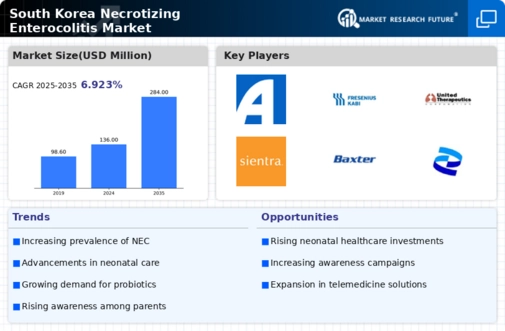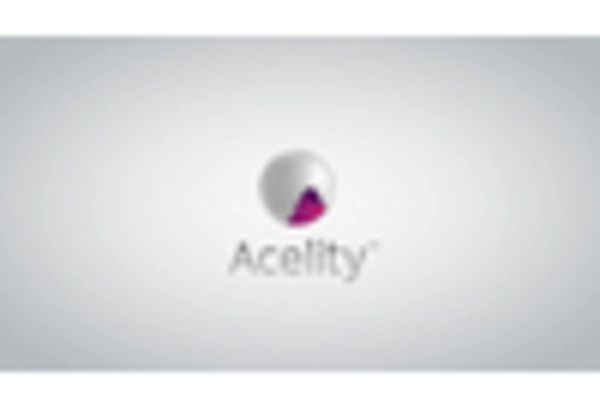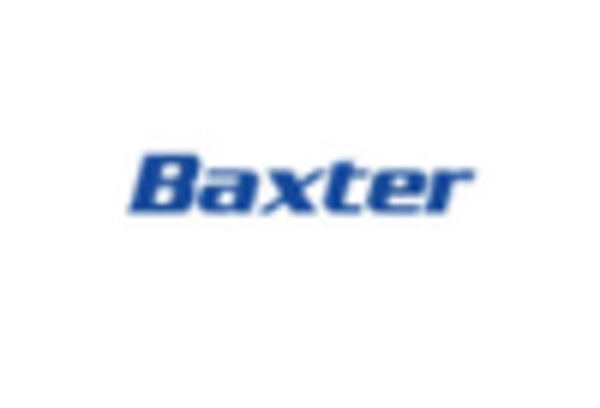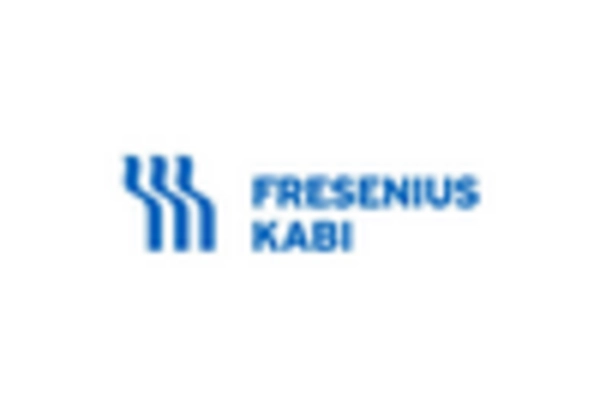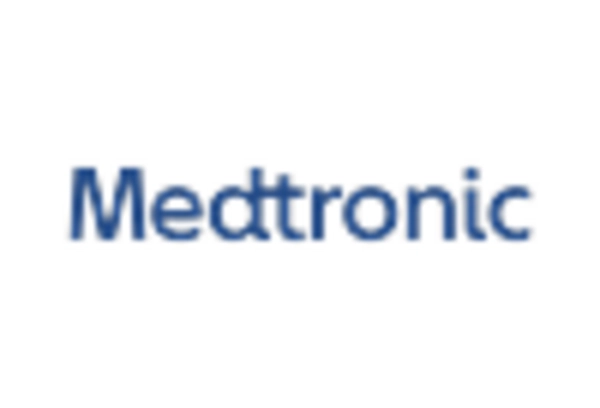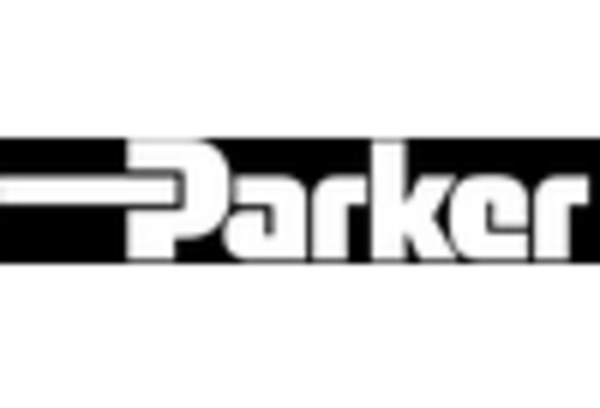Rising Healthcare Expenditure
Rising healthcare expenditure in South Korea is emerging as a significant driver for the necrotising enterocolitis market. As the government and private sectors invest more in healthcare infrastructure and services, there is an increased focus on improving neonatal care. This trend is reflected in the growing budgets allocated to hospitals and healthcare facilities, which are now better equipped to handle complex cases of necrotising enterocolitis. Furthermore, with the increasing availability of advanced medical technologies and treatment options, healthcare providers are more capable of delivering high-quality care to affected infants. This upward trajectory in healthcare spending is likely to facilitate the growth of the necrotising enterocolitis market, as it enables the development and adoption of innovative therapies and interventions.
Government Initiatives and Funding
Government initiatives and funding aimed at improving neonatal health in South Korea are emerging as a crucial driver for the necrotising enterocolitis market. The South Korean government has recognized the need for enhanced healthcare services for premature infants and has allocated substantial resources to support research and development in this area. This includes funding for clinical trials and the establishment of specialized centers for neonatal care. Such initiatives not only foster innovation but also encourage collaboration between public and private sectors, leading to the development of new therapies and treatment options for necrotising enterocolitis. As these efforts continue, the necrotising enterocolitis market is likely to benefit from increased investment and a more robust healthcare infrastructure.
Advancements in Neonatal Care Practices
Recent advancements in neonatal care practices in South Korea are likely to influence the necrotising enterocolitis market positively. Enhanced monitoring techniques, nutritional support, and infection control measures have been implemented in neonatal intensive care units (NICUs) across the country. These improvements aim to reduce the incidence of necrotising enterocolitis among at-risk infants. For instance, the introduction of standardized feeding protocols and the use of probiotics have shown promise in decreasing the occurrence of this condition. As healthcare providers adopt these innovative practices, the demand for specialized products and therapies tailored to prevent and treat necrotising enterocolitis is expected to grow, thereby expanding the market. The ongoing commitment to improving neonatal health outcomes is anticipated to further stimulate the necrotising enterocolitis market.
Increasing Incidence of Premature Births
The rising incidence of premature births in South Korea appears to be a significant driver for the necrotising enterocolitis market. Statistics indicate that approximately 10% of all births in the country are preterm, which correlates with a higher risk of developing necrotising enterocolitis. This condition predominantly affects premature infants, leading to increased healthcare costs and a demand for effective treatment options. As the number of premature births continues to rise, healthcare providers and families are likely to seek advanced therapies and interventions, thereby propelling the necrotising enterocolitis market forward. The focus on improving neonatal care and outcomes for these vulnerable infants is expected to drive innovation and investment in this sector, ultimately enhancing the overall landscape of the necrotising enterocolitis market in South Korea.
Growing Demand for Innovative Treatment Options
The growing demand for innovative treatment options in South Korea is likely to drive the necrotising enterocolitis market significantly. As awareness of the condition increases among healthcare professionals and families, there is a corresponding need for advanced therapies that can effectively manage and treat necrotising enterocolitis. This demand is reflected in the rising interest in novel drug formulations, surgical interventions, and supportive care strategies. Additionally, the market is witnessing a trend towards personalized medicine, where treatments are tailored to the specific needs of individual patients. This shift is expected to create opportunities for pharmaceutical companies and healthcare providers to develop and market new solutions, thereby enhancing the overall landscape of the necrotising enterocolitis market.


